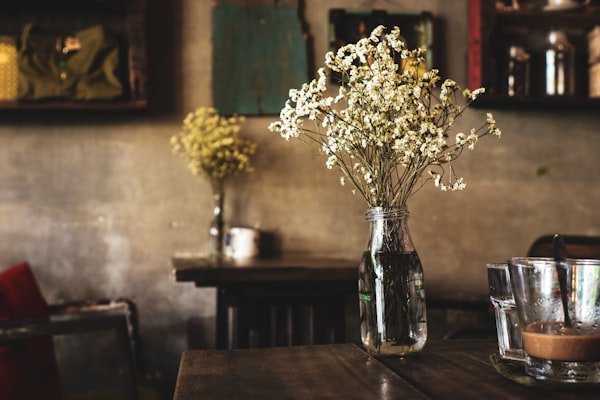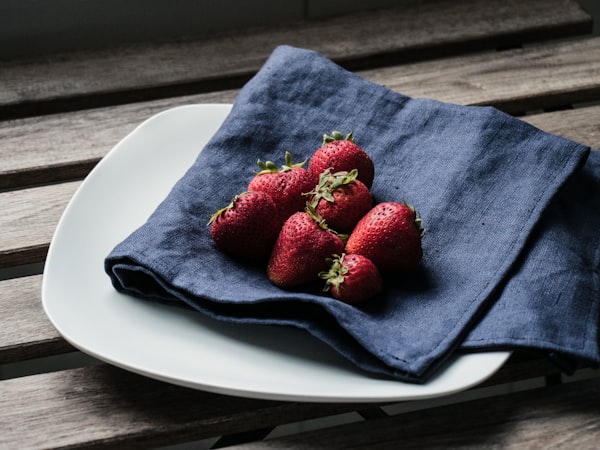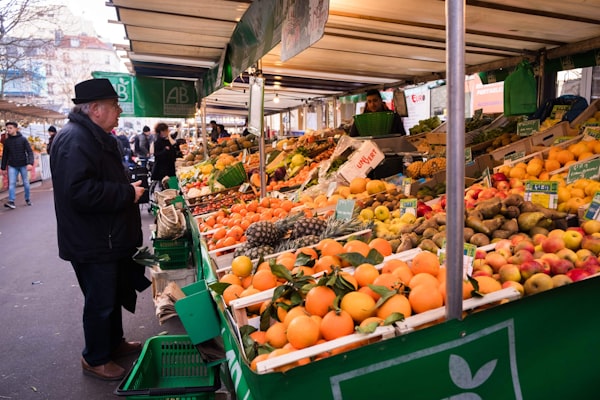
10 Super-easy Ways to Make Your Home Sustainable
Share
Sustainability is a way of living that's least harmful to the environment and uses up the least resources. This is vital in today's world because the planet we live in is deteriorating with so much pollution, man-made garbage, and climate-warming greenhouse gases. Think about it: this planet is our only home, and the one our children will grow up in!
You don't have to be a scientist or an activist to help heal the Earth. We can change some of our individual habits at home one day at a time. And when many of us make these sustainable changes, it can result in a real collective impact. The good news is, these habit changes are easy to make! Check out these super-simple tips to make your household more eco-friendly.
1. Reuse or repurpose containers.
This is kind of a no-brainer, but we all need this reminder from time to time. Before throwing out sauce jars and takeout containers, think about how you can reuse them or find a different purpose for them. If you need ideas, one Google search can give you endless possibilities for reusing or repurposing -- as pen holders, drawer organizers, accessories boxes, planters, and many more.
One caveat though is not to reuse plastic containers too many times for food storage. Due to the chemical components of plastics, never use them for food past 6 months of original purchase. And never reuse plastics that are discolored!
2. Avoid more plastic.
Plastics are tricky materials. They're so convenient to use, but they also gradually leak chemicals called BPA and phthalates (pronounced "THA-lates"). These are linked to health problems like infertility and cancer. Plus, a vast majority of plastics end up polluting the ocean. In fact, only 9 percent of plastics worldwide are recycled!
As much as possible, avoid buying more plastic or anything that's packaged in plastic. Pack some reusable containers with you next time you do groceries so you don't have to rely on plastic bags and pre-packaged produce. Bring your own water in a stainless steel tumbler so you don't have to buy single-use bottles. Try some eco-friendly alternatives to plastic items at home, such as:
- Canvas bags and cardboard boxes
- Bamboo toothbrushes
- Glass bottles
- Biodegradable sponges
- Reusable beeswax wrap instead of cling wrap
- Steel razors instead of disposables
- Wooden tile scrubbers.
3. Opt for washables.
Instead of relying on single-use plastics and paper products, opt for alternatives that you can wash and use again. For example, paper towels can be replaced with washable cloth towels. (If you can repurpose old linens, the better!) For your next party or picnic, steer away from plastic cups and disposable cutlery, and just use your washable dinnerware. And next time you're going out, take a washable tumbler with you pre-filled with your choice beverage. That way, you won't have to keep buying those single-use water or juice bottles.
4. Walk instead of drive.
Besides plastic waste, humans also generate "greenhouse gases" which are the major driving force behind climate change. We emit these gases every time we use up fossil fuels, such as when we use electricity or drive our cars.
To help curb our greenhouse gas emissions, we can lessen our vehicle usage. If you're just going on a nearby errand or visiting someone a few blocks away, choose to walk or bike. It's healthy for the environment and for you!
5. Line-dry laundry.
Take advantage of those clear sunny days -- use all that 'solar power' to air-dry your laundry. Line-dried clothes and sheets have the freshest smell, and they feel wonderfully crisp! But of course, that's just a bonus. The real good that comes out of line-drying is that you're saving electricity by skipping the dryer, and at the same time lowering your greenhouse gas emissions.
6. Unplug.
Believe it or not, some appliances at home still use up power even when they're switched off or on standby mode! Experts call this "vampire energy" or "phantom loads." It happens with appliances that continue to get energized for standby features like clocks, dashboards, and "smart" functionalities. This adds not only to our electricity bill but also to our greenhouse gas emissions.
The one simple solution to prevent vampire energy is to unplug appliances when you're not using them. Double-check devices like microwave, coffee-maker, TV, laptop and phone chargers, game consoles, and electronic home assistants.
Wall art pictured above: "But First, Coffee" Premium Canvas
7. Be mindful when shopping.
Many of us shop on auto-pilot. We just gravitate to the aisles and brands we're used to, without really considering if there are better options. For a more sustainable home, try rethinking a few items you commonly buy. Maybe it's a tile cleaner with harsh chemical ingredients. Maybe it's a kitchen sponge made of plastic. Or maybe it's a vegetable oil brand in plastic bottles.
Before you head out to the supermarket, see if you can find a brand that uses more sustainable materials -- or see if you can DIY it at home instead! For instance, savvy homemakers know that a combination of baking soda, vinegar, and dish soap makes an excellent tile cleaner!
8. Buy local.
Speaking of grocery shopping, it's generally better to buy your fruits and vegetables from the farmers' market and locally owned shops instead of big-brand supermarkets.
Buying local has many benefits: It gives you fresher, more organic produce (less preservatives!). It supports the farmers, gardeners, and suppliers in your city. And it's less carbon-emitting because the produce doesn't have to be transported far in refrigerated trucks. Don't forget your reusable shopping bag when you go!
9. Grow your own herbs.
Want the most sustainable way to get fresh herbs? Grow them yourself! Don't worry, you don't have to be an expert gardener for this. Many herbs such as basil, oregano, sage, chives, and rosemary are easy to grow, even in indoor pots. Just make sure you provide the basics, like water, lots of sunshine, and a little bit of compost. Try it -- you'll love the feeling once you're cooking with your own harvest!
Wall art pictured above: "Eat Well, Travel Often" Premium Canvas
10. Decorate with sustainable materials.

If you've ever hosted a party, you know how much waste gets discarded after the festivities are over. Mylar balloons, styro standees, plastic confetti... the list goes on! Did you know that even glitter -- yes, the sparkly, tiny stuff that gets everywhere -- has an impact on the environment? They're non-biodegradable and non-recyclable, so they end up accumulating in waterways and harming wildlife.
For your next event, get creative with biodegradable, non-toxic decor. Handmade paper medallions, paper buntings, and reusable fabric streamers are just some examples. One of our favorites, and arguably the cutest eco-friendly party decor idea, is to replace plastic confetti with ones punched out of fallen leaves! See the example above from crafty mom Cara.
With these easy eco-friendly ideas, we hope you can make one or two little changes towards a sustainable home. Got an environment-friendly idea of your own? Share with us in the comments!
P.S. If you liked the wall art featured here, browse GearDen.com for more! Our wall decor pieces are canvas prints stretched over a wood frame. Beautiful, durable, and sustainable!









